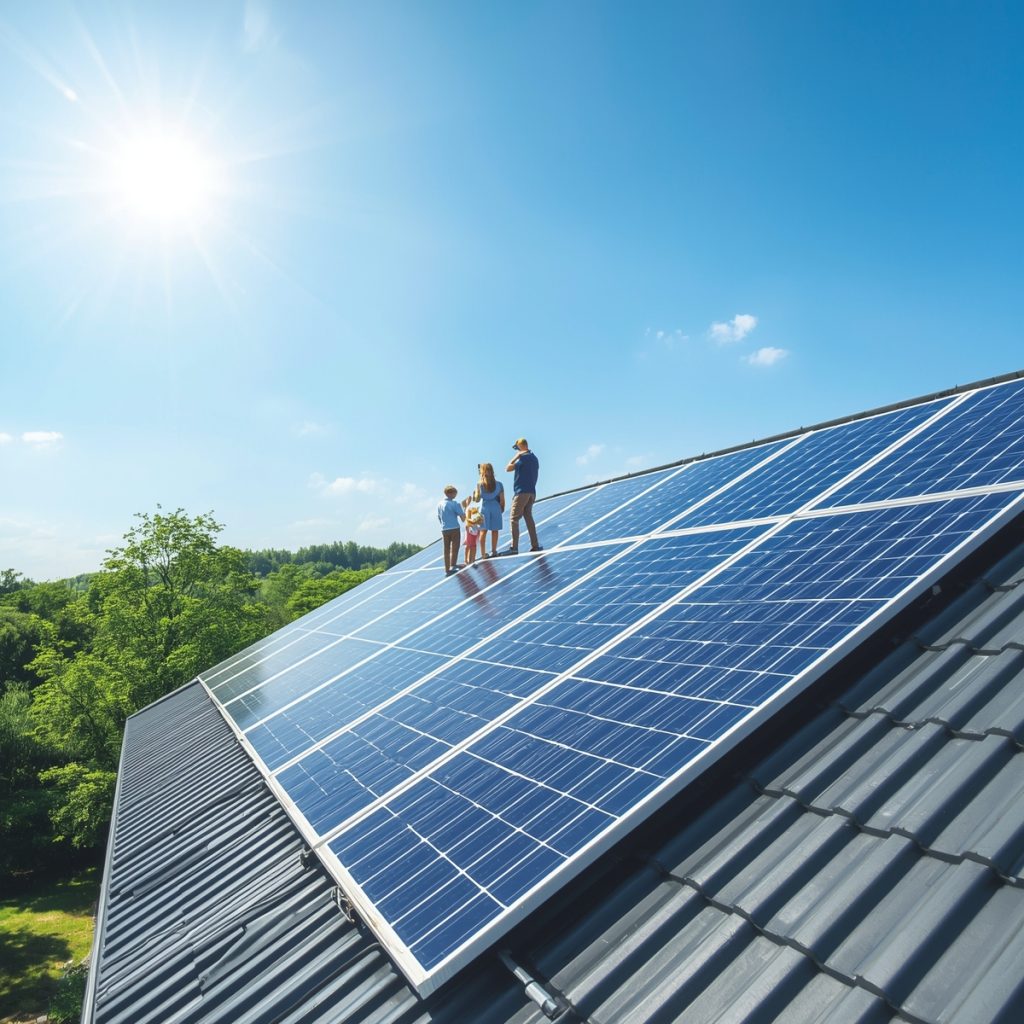best Solar Power for Beginners | solar incentives | greennworld
Best Solar Power for Beginners In today’s rapidly advancing world, the demand for renewable energy is stronger than ever. Among all the clean energy options available, Solar Power for Beginners stands out as one of the most practical and sustainable solutions for households and businesses alike. The idea of converting sunlight into usable electricity may sound complex, but the process is simpler and more accessible than most people think. Learning about the best Solar Power for Beginners not only empowers individuals to contribute to a cleaner environment but also helps them understand the long-term financial and environmental benefits of switching to solar energy. As the cost of traditional energy sources continues to rise, many individuals are seeking affordable and sustainable alternatives. Best Solar Power for Beginners introduces you to a system that captures sunlight using photovoltaic (PV) panels and converts it into electrical energy. It’s an efficient and eco-friendly method that reduces dependence on fossil fuels and lowers carbon emissions. With proper installation and understanding, anyone can start their solar journey and gain energy independence for decades to come. Understanding How Solar Power Works To truly grasp the best Solar Power for Beginners, it’s essential to understand how sunlight transforms into electricity. When sunlight hits the solar panels, it excites electrons within the silicon cells, creating an electric current. This current is then captured and directed through an inverter, which converts the direct current (DC) into alternating current (AC)—the type of electricity used in homes and businesses. The best solar energy system is composed of several critical components: solar panels, an inverter, a charge controller, and sometimes a battery storage unit. The inverter plays a vital role in ensuring that the electricity generated is compatible with standard electrical systems. For those new to Best Solar Power for Beginners, understanding these components is key to maintaining efficiency and optimizing performance. Moreover, solar energy is highly scalable—you can start small and expand your system over time. Whether it’s powering a single light or an entire home, the best Solar Power for Beginners gives flexibility to users based on their energy needs and budget. The installation process requires proper site assessment, typically focusing on sunlight exposure, roof angle, and shading. Advantages of Solar Power The benefits of Solar Power for Beginners extend far beyond reduced electricity bills. First and foremost, it’s a renewable and clean energy source. Unlike coal or natural gas, solar energy doesn’t release harmful greenhouse gases or pollutants. This makes it a cornerstone of sustainable development and a powerful tool in combating climate change. Financially, the savings potential is enormous. Many countries and local governments offer solar incentives and tax rebates to make the transition more affordable. Once installed, the system requires minimal maintenance and provides free electricity for decades. This reduces energy expenses dramatically and increases the value of your property. Another key advantage is energy independence. Relying on solar panels reduces dependence on centralized power grids and fossil fuel markets, giving individuals control over their own energy supply. Additionally, solar panels have become more durable and efficient over time, offering long lifespans of 25 years or more. In rural or off-grid areas, Solar Power for Beginners provides an opportunity to access electricity where traditional power lines can’t reach. The system is modular, adaptable, and suitable for various environments, from urban rooftops to remote fields. Environmental Impact of Solar Power The environmental benefits of Solar Power for Beginners are immense. Every kilowatt-hour (kWh) of solar energy generated prevents a significant amount of carbon dioxide from being emitted into the atmosphere. By adopting solar technology, individuals contribute to a global effort to reduce carbon footprints and preserve the planet for future generations. The reduction in air pollution is another major advantage. Fossil fuel plants emit harmful substances such as sulfur dioxide and nitrogen oxides, which contribute to smog, acid rain, and respiratory diseases. Solar power, on the other hand, generates electricity silently and cleanly, helping cities achieve better air quality. Solar energy also plays an essential role in water conservation. Traditional energy production requires massive amounts of water for cooling and refining processes. Solar panels require almost no water to operate, making Solar Power for Beginners an environmentally responsible choice in water-scarce regions. Furthermore, solar panels can be recycled at the end of their lifespan. Many manufacturers are developing programs to reclaim and reuse materials like silicon, glass, and aluminum, further minimizing waste and enhancing sustainability. Steps to Getting Started with Solar Power If you’re new to the concept, beginning with the best Solar Power for Beginners involves a few essential steps. First, assess your current energy consumption. This helps determine how large or small your solar setup should be. Most people start with a basic installation that powers essential appliances and gradually expand as they gain experience and confidence. Next, evaluate your location. Sun exposure is the most critical factor in solar efficiency. Use tools or consult professionals to analyze how much sunlight your property receives throughout the year. South-facing roofs with minimal shade are ideal for solar panel placement. The third step involves selecting the right type of solar panels. There are mainly three types: monocrystalline, polycrystalline, and thin-film. Each has different efficiency levels and cost points. For the best Solar Power for Beginners, monocrystalline panels are usually recommended due to their higher performance and compact design. After choosing your equipment, contact certified installers to handle the installation process. Proper wiring, mounting, and inverter setup are crucial for safety and optimal performance. Many companies also provide warranties and monitoring systems that help track energy production and consumption. Economic and Social Benefits of Solar Energy Adopting the best Solar Power for Beginners doesn’t just benefit individuals—it strengthens communities and economies. As the solar industry expands, it creates thousands of jobs in manufacturing, installation, and maintenance. These employment opportunities contribute to local economies and foster innovation in renewable technology. Solar power also encourages sustainable development by providing energy access to remote or underserved areas. It empowers communities by offering

